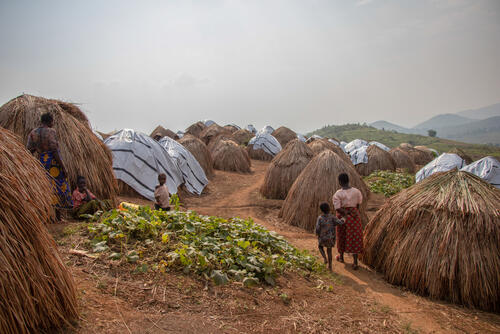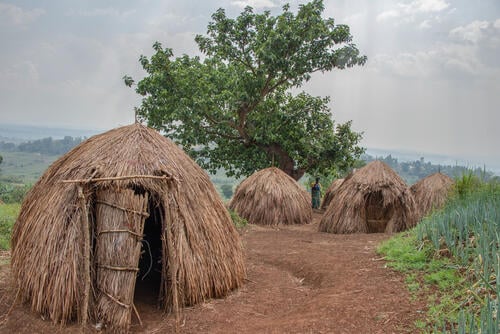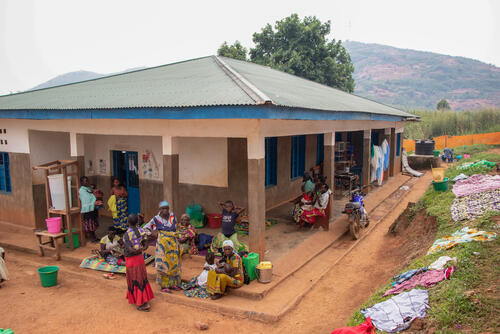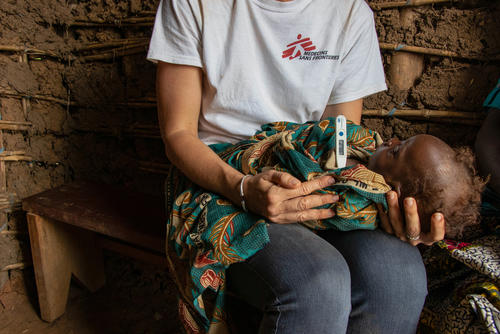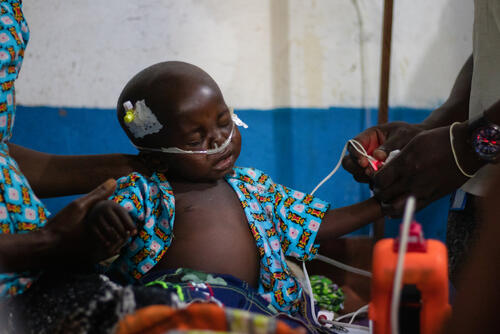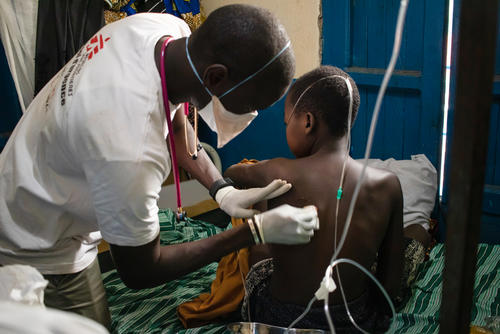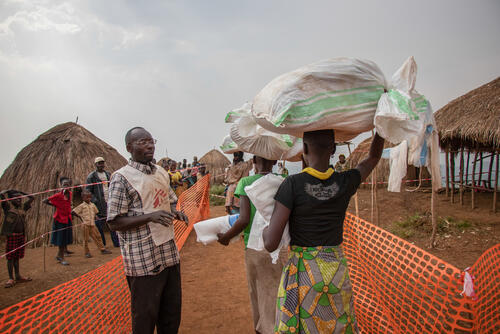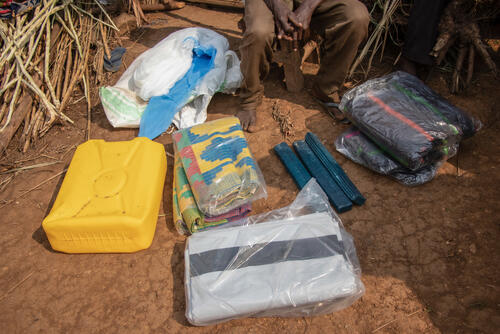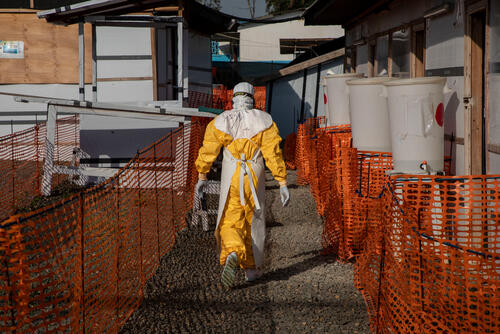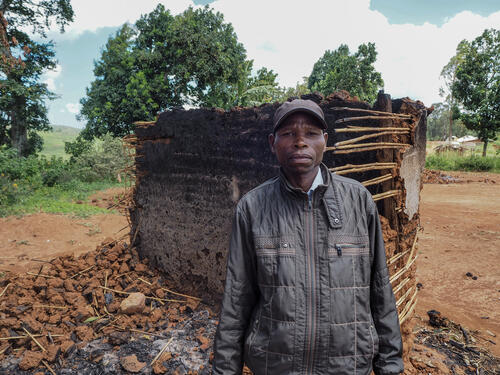Thousands of people are currently displaced in Ituri province, Democratic Republic of Congo (DRC), forced to flee from their homes because of intense violence between communities.
The massacres between the Hema and Lendu communities that so violently marked the history of this province in the northeast of DRC in the early 2000s, reignited in December 2017. Estimates suggest that more than a million people have been displaced by the violence since 2017According to he United Nations Office for the Coordination of Humanitarian Affairs (OCHA), although it is almost impossible to know the exact figure due to the frequent movement of the population.
Today, approximately 200,000 people have spontaneously gathered and settled in sites where they fundamentally lack essential needs such as water, food and healthcare. Hundreds of thousands of others are living with host families. Humanitarian agencies need to urgently step up and scale up assistance to people.
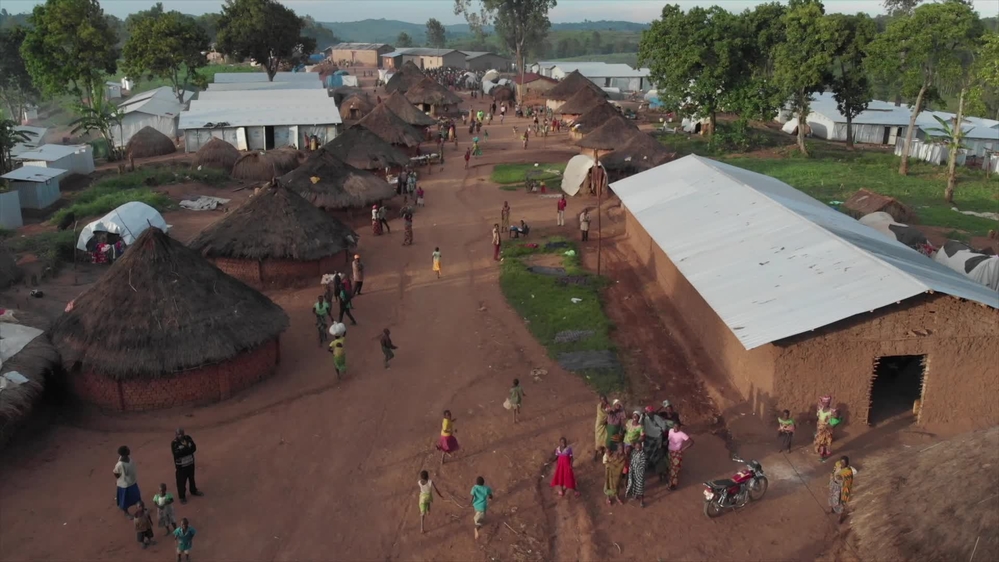
Internally displaced people in Drodro and Nizi, DRC
Night of terror forces people to flee
“I live in the Tse Lowi [camp site] with my son and six grandchildren,” says Yvonne, who has been displaced. “It has been two years since we had to flee our village. Armed men descended on the village after dark, setting fire to our houses and killing people in a most dreadful way.”
“My son’s wife died that night. They burnt down my house and we had no choice but to flee in the middle of the night, taking nothing but the clothes on our backs,” explains Yvonne, sitting in front of her straw hut, barefoot and wearing a tattered dress. “We walked for three days and spent three nights sleeping in the bush to get away from the attackers. I was scared. We finally reached Tse Lowi on the third day.”
Inside the hut, one of Yvonne’s grandsons is stoking the fire crackling beneath a bubbling saucepan. The hut seems fragile, as if it could go up in flames with the slightest gust of wind fanning the fire. It’s hard to imagine how eight people can sleep in this small space, which serves both as bedroom and kitchen.
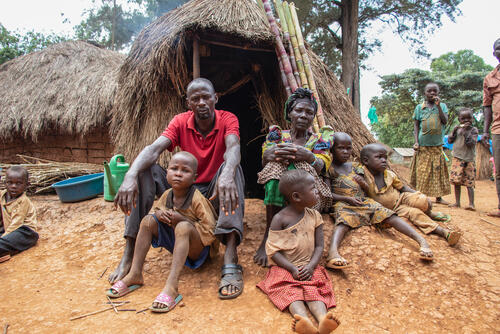
Dire camp conditions leading to illness among the displaced
Dozens of makeshift camp sites have sprung up in the hills of Nizi. They can be glimpsed from each bend of the dusty roads winding through the area. One can guess how long the sites have been there based on how they have been built: the most recent sites only have straw huts while more established settlements have some sanitary facilities such as toilets and sometimes tarpaulins to protect the shelters from the rain.
The most fortunate ones live in buildings built by humanitarian agencies. Still, none of the sites can sufficiently meet the needs of the displaced; they lack food, clean water and sanitation.
People are developing preventable illnesses such as diarrhoea and malnutrition while other diseases, such as respiratory infections and malaria, can also be directly linked to the poor living conditions. Thousands of children are affected and killed by these illnesses.
According to recent surveys carried out by MSF, the mortality rate is three times above the emergency threshold among children under the age of five who arrived during spring 2019.
“When the children get sick, I take them to the community health post in the camp”, continues Yvonne.
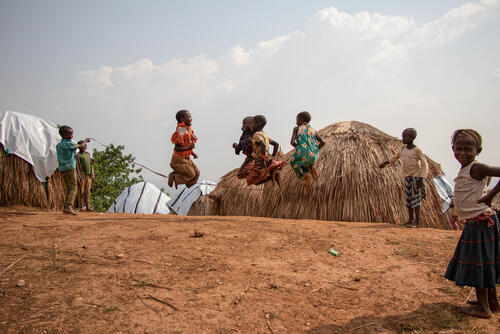
Community-run health posts supporting MSF health centres and hospitals
Community health posts have been set up by MSF in 19 of the 24 camps in the area. They are run by a member of the community who has been trained to recognise the most common illnesses.
They measure the children’s mid-upper arm circumference using so-called MUAC tapes to detect malnutrition. They also carry out rapid tests for malaria and check for fever and diarrhoea. They have a stock of easy-to-use medicines such as paracetamol and antimalarials which they use to provide initial treatment, and if needed, refer sick children to one of the seven health centres supported by MSF.
There is an MSF nurse working in each health centre to assist the local health staff. From there, seriously ill children are referred to Nizi General Referral hospital for hospitalisation and specialist care. At Nizi hospital, MSF supports the Ministry of Health-run intensive care and resuscitation unit, the paediatric ward, the nutrition and post-natal units.
The main aim is to treat children as early as possible to avoid medical complications. Given the huge needs in the region, the occupancy rate of the paediatric ward has often gone over100 per cent, requiring us to increase the capacity of the inpatient department. Today, the paediatric ward has a total of 56 beds.
Lack of basics in camps contributes to difficult situation for people
Yvonne lives in the Tse Lowi displacement camp with her son and six grandchildren. Her tiny hut, in which she cannot even stand up, is made of straw. Whenever it rains the whole family gets wet.
Fortunately, hygiene facilities have been installed in their camp, including latrines and enclosed areas where it is possible to wash with some privacy. That is not the case in the camps that have appeared more recently with the latest waves of displaced people, such as Kambe camp, which was built seven months ago and is currently home to 426 households that share just four makeshift latrines and have nowhere to shower.
“Kambe camp is divided into four blocks; I'm responsible for the inhabitants of block 2. There are more than 300 people living in my block”, says Aimé Mave Dhesi. “The small hut at the end of the block is our only toilet; we have no shower, so we wait until it’s dark, when nobody can see us, to wash ourselves.”
“Food is very scarce here. The few plots of onions, pumpkin and potatoes that we grow aren’t enough to feed everyone and the nearest water source is a 45-minute walk away”, explains Aimé. “The displaced people in Kambe help the locals in their fields to earn a bit of money. A typical day wage is around CDF 1,000 (or €0.50), which is barely enough to buy food, and if they get sick, their families are left with empty stomachs until they are able to go back to work.”
Since December 2019, we have scaled up our activities in order to respond to the needs of the displaced people. However, the current level of assistance is not sufficient, and people are still living in extremely poor conditions. The humanitarian community in Ituri needs to urgently address this crisis and scale up assistance.
MSF is providing medical care to displaced persons, working to improve access to clean water, and distributing mosquito nets and relief items at 34 sites in the health zones of Nizi, Drodro and Angumu.



